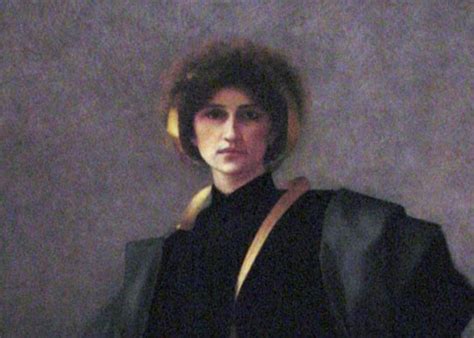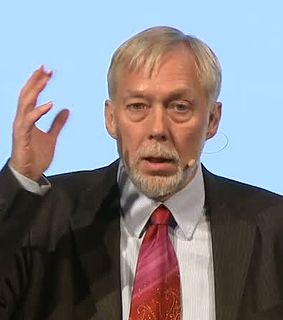A Quote by Ralph Waldo Emerson
The crowning fortune of a man is to be born to some pursuit which finds him employment and happiness, whether it be to make baskets, or broadswords, or canals, or statues, or songs.
Related Quotes
Genial manners are good, and power of accommodation to any circumstance, but the high prize of life, the crowning fortune of a man is to be born with a bias to some pursuit, which finds him in employment and happiness, -- whether it be to make baskets, or broadswords, or canals, or statutes, or songs. I doubt not this was the meaning of Socrates, when he pronounced artists the only truly wise, as being actually, not apparently so.
The world is so unhappy because it is ignorant of the true Self. Man’s real nature is happiness. Happiness is inborn in the true Self. Man’s search for happiness is an unconscious search for his true Self. The true Self is imperishable; therefore, when a man finds it, he finds a happiness which does not come to an end.
If [God] has made it a law in the nature of man to pursue his own happiness, He has left him free in the choice of place as well as mode, and we may safely call on the whole body of English jurists to produce the map on which nature has traced for each individual the geographical line which she forbids him to cross in pursuit of happiness.
It is generally allowed, that no man ever found the happiness of possession proportionate to that expectation which incited his desire, and invigorated his pursuit; nor has any man found the evils of life so formidable in reality, as they were described to him by his own imagination; every species of distress brings with it some peculiar supports, some unforeseen means of resisting, or powers of enduring.
If there ever was a pursuit which stultified itself by its very conditions, it is the pursuit of pleasure as the all-sufficing end of life. Happiness cannot come to any man capable of enjoying true happiness unless it comes as the sequel to duty well and honestly done. To do that duty you need to have more than one trait. From the greatest to the smallest, happiness and usefulness are largely found in the same soul, and the joy of life is won in its deepest and truest sense only by those who have not shirked life's burdens.
A total reverse of fortune, coming unawares upon a man who 'stood in high degree,' happy and apparently secure,-such was the tragic fact to the mediaeval mind. It appealed strongly to common human sympathy and pity; it startled also another feeling, that of fear. It frightened men and awed them. It made them feel that man is blind and helpless, the plaything of an inscrutable power, called by the name of Fortune or some other name,-a power which appears to smile on him for a little, and then on a sudden strikes him down in his pride.









































